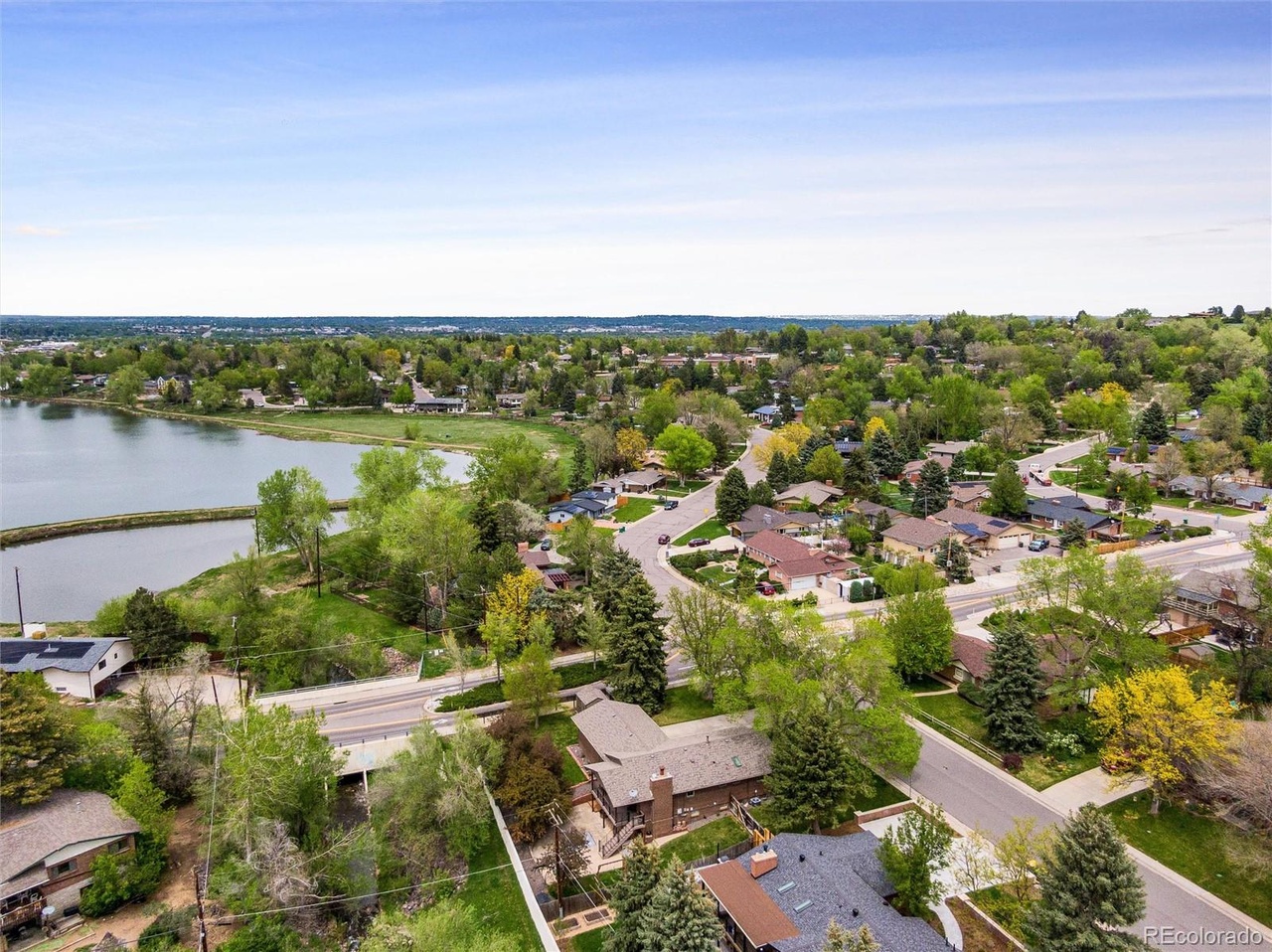From L.A. to Applewood: How I Found This Hidden Gem
When I moved from Los Angeles to Denver, Applewood wasn’t on my radar. In fact, I hadn’t even heard of it. That changed quickly when my brother and sister-in-law began searching for a new home and focused almost exclusively on Applewood—a neighborhood full of architectural character, mountain views, and some of the most generous lots in the metro area. They ended up buying a home in the heart of Applewood Valley. And that was the start of my Applewood story.
Applewood is a Geographic Sweet Spot
Nestled just west of Kipling and east of Youngfield, between Colfax and 32nd, Applewood straddles Lakewood, Golden, and Wheat Ridge—all within Jefferson County. It’s the kind of place where, within 20 minutes, you can be in downtown Denver or heading up I-70 into the mountains. But beyond location, what truly sets Applewood apart is its character.
Applewood’s Mid-Century Roots and Signature Architecture
Applewood is pure mid-century charm. Think wide, curving streets lined with sprawling ranch-style homes, mature trees, and grassy front yards. These homes reflect thoughtful, era-specific design—each one a little different from the next. Many were built in the 1950s and ’60s with a strong mid-century influence and sit on oversized lots that give Applewood its unmistakable sense of openness and ease.

A History Lesson From Gold Rush to Orchard to Neighborhood
The neighborhood’s roots date back more than 160 years, when homesteaders discovered that farming was more profitable than chasing gold. Fred and Emma Bunger were among the early settlers, and generations of the Bunger family helped lay the groundwork for what is now one of the most desirable communities on Denver’s west side. It was Myron Bunger who, while using dynamite to clear land, discovered that nitrogen from the blast enriched the soil—resulting in thriving apple, pear, cherry, and peach trees. That’s how Applewood got its name.
Local Life in Applewood: Businesses, Restaurants, and Community
By the 1950s, the area was being developed with a clear vision—large-acreage ranches, a uniform mid-century style, and a few carefully placed commercial zones, some of which are still the backbone of Applewood’s small business community today. You’ll find an eclectic mix of mom-and-pop shops, award-winning restaurants, and neighborhood anchors like Applejack Wine & Spirits and Teller’s Taproom.
A Personal Real Estate Story
There’s always that one listing that shifts things. For me, it was the first time I was asked to help a longtime Applewood resident downsize after decades in their home. It wasn’t just a transaction—it was a full-circle moment that connected me to this neighborhood in a whole new way. That home belonged to my brother’s next-door neighbor and the unofficial mayor of Winfield Drive. He had lived there since the ’70s, and when he decided it was time to downsize, he entrusted me to help him through the entire process—from estate sales (which included original Golden Nugget slot machines and vintage pinball) to staging and sale. The main floor was pure 1980s nostalgia, and the basement was like stepping into the 1960s. That sale sparked more connections in the neighborhood, and since then, I’ve had the privilege of representing some of Applewood’s most iconic properties.
When Applewood Went Viral
One of my recent listings, 1965 Tabor Street, was so unique it was featured nationally on both Realtor.com and Zillow Gone Wild. Realtor.comeven dubbed it “the real estate mullet”—business in the front, party in the back. It was a classic Applewood home with a twist: an indoor/outdoor pool, a full bar, and design choices you truly had to see to believe.


Why Buyers Love Applewood (And Why It Sells Fast)
Applewood continues to evolve. What once was a community of mostly original homeowners is now welcoming an influx of younger buyers and families, many of whom are leaving Denver’s urban core in search of space, charm, and a deeper sense of community. While average home prices across Applewood may be skewed by the occasional condo or townhome, single-family ranches in original condition typically start in the mid-$900,000s, with renovated or expanded homes often selling for $1.5M and beyond. Applewood has become one of the most sought-after neighborhoods on Denver’s west side—offering not just more space, but a true sense of place. It’s not about flash or trendiness—it’s about architectural continuity, generous lots, and a community that feels established and welcoming. For buyers looking for legacy over luxury branding, Applewood delivers in a way few neighborhoods can.
Applewood’s Location, Lifestyle, and Amenities
Applewood is a tucked-away, under-the-radar gem that longtime locals love and newcomers are just beginning to discover. It’s close to I-70, U.S. 6, and C-470, which makes mountain getaways a breeze and downtown commutes just as manageable. Applewood offers a rare blend of serenity and accessibility—quiet residential streets, minimal traffic, and scenic routes that lead you straight into the foothills or into the heart of Denver in under 20 minutes. You’ll also find some of the most respected public schools in the metro area, strong community organizations, and a vibrant network of tennis and swim clubs, including Applewood Swim and Tennis and nearby Mount Vernon Canyon Club. Golfers can tee off at the well-loved Applewood Golf Course, and outdoor enthusiasts will appreciate the abundance of parks, greenbelts, and multi-use trails perfect for walking, biking, or taking in a sunset. It’s the kind of place where you can be active, connected, and grounded—all in one neighborhood.
Interested in Applewood Real Estate? If you’re not familiar with Applewood, now’s the time to explore. And if you have a story about this neighborhood—or want to write the next chapter here—I’m always happy to connect.

 Facebook
Facebook
 X
X
 Pinterest
Pinterest
 Copy Link
Copy Link


